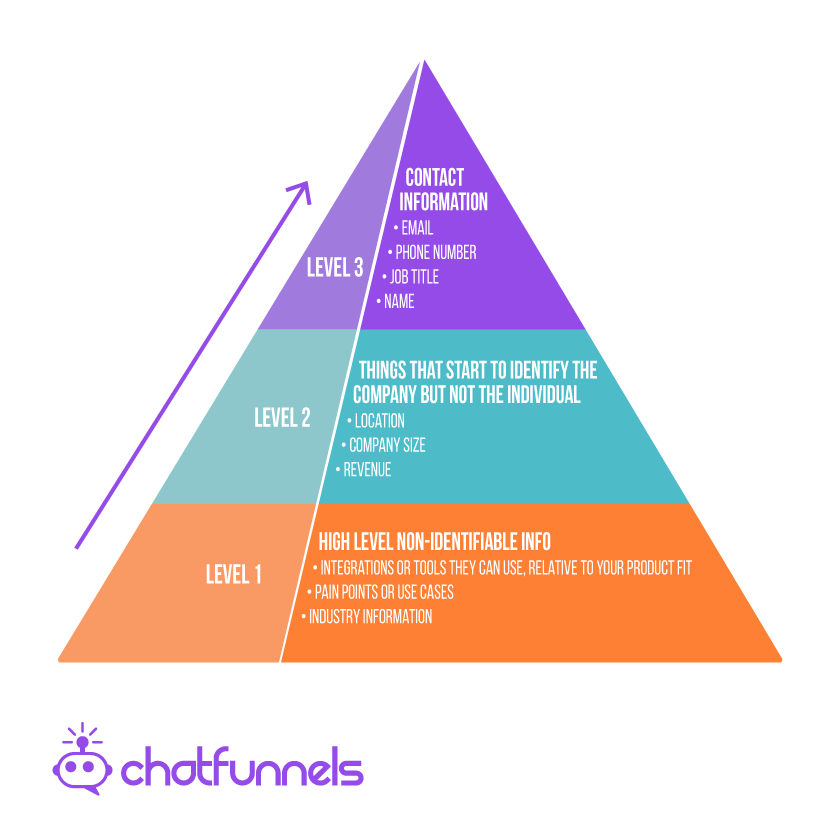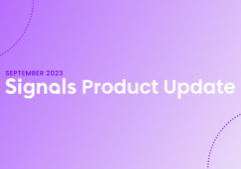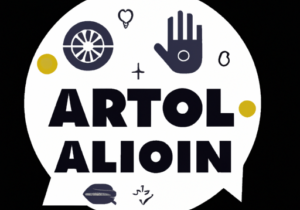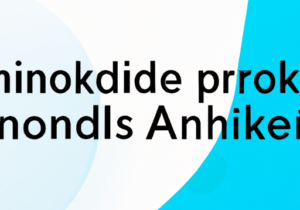Autonomously booking meetings is one of the best capabilities of a chatbot.
Not only is that feature beneficial for you because you can set more appointments, but it is beneficial for your customers as well. It’s frustrating for customers to fill out a form and then wait for the company to get back to them, and then go through the qualifying process with the sales rep, and then have to coordinate a meeting time. It’s a tedious process. 66% of customers say that “a frustrating experience on the website hurts [their] opinion on the brand overall.” However, with bots, that frustration is eliminated. Your calendar is connected to the bot, so it can automatically give calendar drops to users and they can schedule the meeting right then and there. No need to wait! Say goodbye to phone calls and exhausting back-and-forth emailing.
When you give the customer what they need in the moment they need it, not only do you gain their trust, but they become more likely to convert.
Let’s look at the data:
- 21.48% of conversations with chatbots lead to meetings booked
- 25% of users engaging with the bot end up booking a meeting with you.
- 46% of customers who have started a conversation with the bot provide their email.
- This next one is going to sound crazy, but the data doesn’t lie! One of our clients has seen an increase in appointment settings by 567% after adding a bot to their website!
Let’s discuss what the best practices are when having a bot book your meetings. There are two key points: managing expectations and qualifying leads.
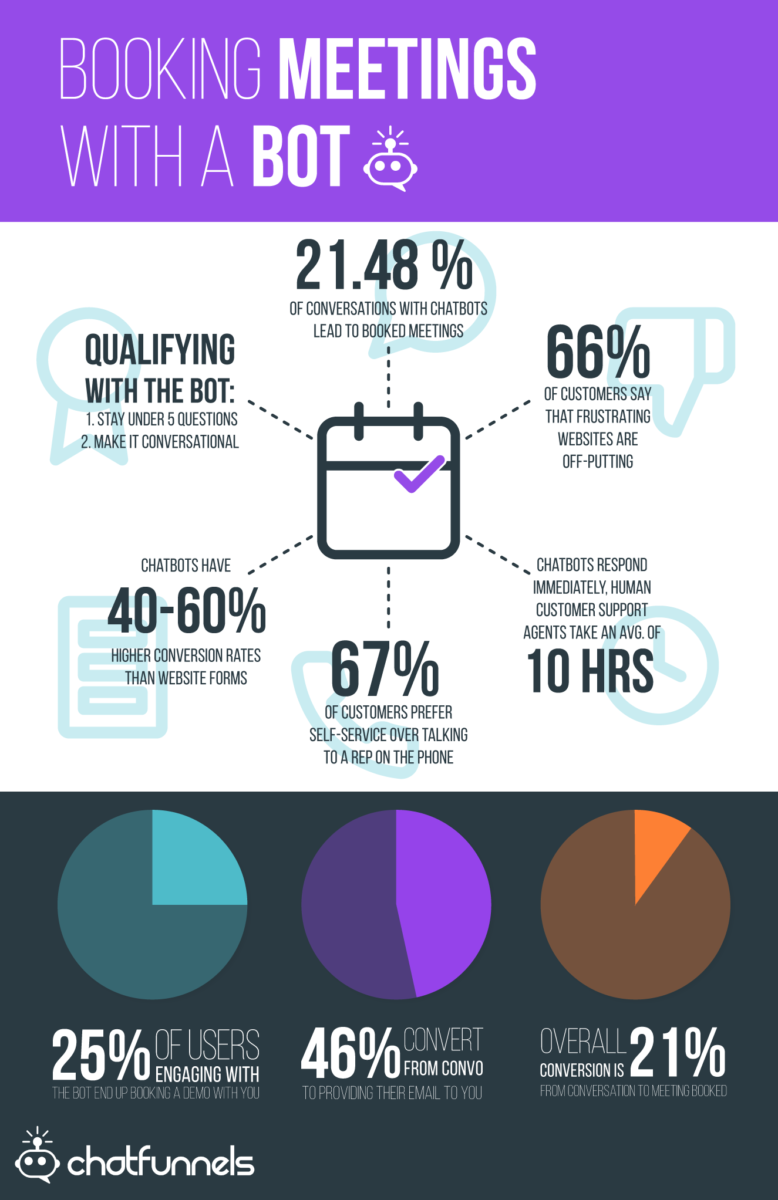
1. Managing Expectations
People need to know what to expect. You want your customers’ expectations to align with what the bot has to offer. Youtube is probably the only place where people keep coming back even though the titles are click bait. You don’t want to be deceitful. Setting up false expectations is not the best practice.
If you want loyal customers, you have to be upfront and straightforward. Helping your customers know what to expect is crucial in building their trust. For example, the bot shouldn’t just start asking a series of questions. If the customer doesn’t know how many questions the bot is going to ask, they are more likely to drop out mid conversation. A good way to go about it is to have the bot ask them something along the lines of, “Can I ask you 4 simple questions?” That way the customer knows what to expect and is more willing to continue conversing with the bot.
As the customers stick with the conversations, the number of people booking meetings goes up.
2. Qualifying Leads
It’s great and all that chatbots facilitate the process of booking meetings, but what really sets them apart is that they book meetings with qualified leads. You don’t want to waste your time with an unqualified lead, right? You want quality meetings with quality leads.
If you implement chatbots, you can have 24/7 qualifying, because like we said, it’s done through the bot. It’s a hassle for sales reps to have to deal with a million phone calls, trying to see if people are actually interested and if they meet the qualifications of your ideal customer. And it’s a hassle for the potential customer to have to go through that process. Chatbots save customers’ and your company’s time.
Here are 2 tips to ensure that a bot properly and effectively qualifies leads:
- Stay under 5 questions. If you ask more than 5 questions, you risk quick disengagement, and essentially lose sales.
- Make it conversational. Yes you want to capture their phone number or email, but in order to do so, you must be casual about it. In real life, you would never run up to someone and immediately ask for their contact information. So don’t have your bot do that! Have the bot converse with them a bit before hammering them for their email. Follow this pyramid of engagement. Start with level 1 questions and work your way up.
Bots vs. Forms
Let’s compare bot conversion rates to form conversion rates. Logically, it makes sense that bots would have higher conversion rates, and the data is there to back that up. Chatbots have 40-60% higher conversion rates than forms!There is more engagement with bots; ergo, there is a greater chance that the prospect will convert. Forms can seem tedious; chatting is quicker and more engaging.
And as we said in the beginning, it’s more efficient to book a meeting through a bot vs. filling out a form and waiting to hear back from the company. You, as the company, need to do what you can to streamline this process for your current and potential customers.
Consider this: Companies with human customer support agents take an average of 10 hours to respond to messages. Human to human interaction may have been preferred in the past, but consumer sentiment has shifted, and 67% of customers now say they prefer self-service over having to talk to a rep on the phone. So not only does it demand more of the costumer’s time when there is no bot, but they also prefer a bot experience.
Overall, chatbots are a more time- and cost-effective way to generate leads.
Don’t wait! Implement chatbots now and get your customers booking meetings right when they’re interested!
READ MORE
Start seeing your Buyers' signals
Signals is helping companies automate, grow, and close sales pipeline with industry-leading predictive intent scoring, lead generation, and real-time engagement.


